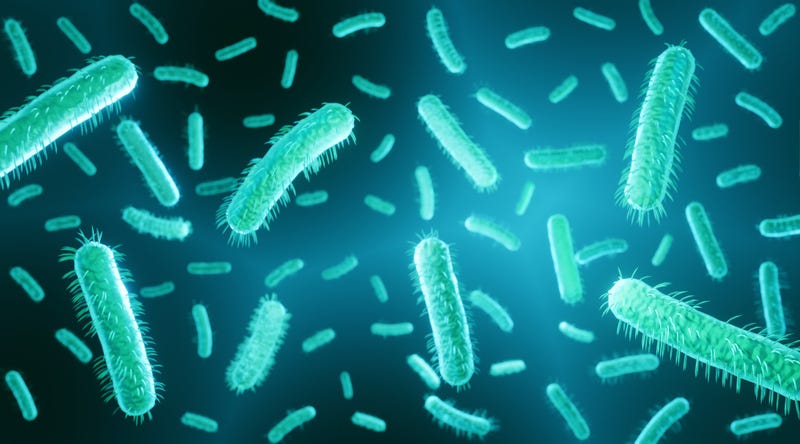
(WWJ) – Health officials in Michigan say they’re seeing a “significant jump” in cases of illnesses tied to E. coli bacteria, including in Oakland County.
The Michigan Department of Health and Human Services has received reports of 98 E. coli infections in August. That’s a large increase compared to just 20 reported during the same time period in 2021.
MDHHS officials say they’re monitoring the recent spike in illnesses, along with the Michigan Department of Agriculture and Rural Development (MDARD) and local health departments in Oakland, Kent and Ottawa Counties.
With the investigation still in its early stages, health officials have not revealed what may be causing the jump in cases, though lab results have linked some of the cases to each other.
Officials did not say how many cases have been reported in Oakland County. No deaths were reported.
MDHHS chief medical executive Dr. Natasha Bagdasarian says reports of E. coli typically increase during the warmer summer months, but this recent spike is “alarming.”
“This is a reminder to make sure to follow best practices when it comes to hand hygiene and food handling to prevent these kinds of foodborne illness,” Bagdasarian said, per a press release. “If you are experiencing symptoms of E. coli infection like cramping and diarrhea (or gastrointestinal distress), especially if they are severe, make sure to let your health care provider know.”
Some kinds of E. coli cause disease by making a toxin called Shiga toxin, according to MDHHS. The bacteria that make these toxins are called "Shiga toxin-producing" E. coli, or STEC. The most commonly identified STEC in North America is E. coli O157:H7.
MDHHS says STEC has been connected to the recent increase in infections.
Symptoms of E. coli infection vary for each person, but often include:
• Severe stomach cramps
• Diarrhea – often bloody
• Vomiting
• Fever
Symptoms usually appear three to four days after exposure, MDHHS says, but may appear in as short as one day or as long as 10 days. Symptoms often improve within five to seven days. Some infections are very mild, but others can be severe or even life-threatening. Younger children and older adults may be more likely to experience severe illness.
Anyone who is experiencing symptoms of E. coli infection is urged to talk to their healthcare provider as soon as possible. Health care providers should contact their local health department to report suspect or confirmed cases.
MDHHS officials say about 5-10% of people diagnosed with this infection develop a complication known as hemolytic uremic syndrome that typically appears seven days after symptoms begin, often when diarrhea is improving. Symptoms of hemolytic uremic syndrome can include decreased frequency of urination, feeling very tired and losing color in cheeks and inside the lower eyelids.
Prevention of E. coli is often directly connected to proper hand hygiene and food handling practices, such as:
• Washing hands with warm water and soap for at least 20 seconds, or using an alcohol-based sanitizer with at least 60% alcohol. This should be done before and after handling food, after using the bathroom or changing a diaper, or after contact with animals or their environments, such as farms, petting zoos, fairs or even the backyard.
• Always marinating foods in the refrigerator, not on the counter or outdoors. Never reuse sauce on cooked food used to marinate raw meat or poultry.
• Never placing cooked food on a plate that previously held raw meat, poultry, seafood or eggs. Be sure to have on hand plenty of clean utensils and platters.
• Never letting raw meat, poultry, eggs or cooked food sit at room temperature more than two hours before putting them in the refrigerator or freezer (one hour when the temperature is above 90 degrees Fahrenheit.
• Cooking meats thoroughly. Ground beef and meat should be cooked to an internal temperature of at least 160 degrees Fahrenheit. Consumers should use a food thermometer as color is not an indicator of “doneness.”
• Rinsing fruits and vegetables well under running water. There is no need to use soap.
• Avoiding raw milk, unpasteurized dairy products and unpasteurized juices (like fresh apple cider).
• Avoiding swallowing water when swimming or playing in lakes, ponds, streams, swimming pools and backyard “kiddie” pools.
For additional information on E. coli, visit the USDA website on protection from foodborne illness or the CDC website on prevention. Find food safety information on the MDARD website.


